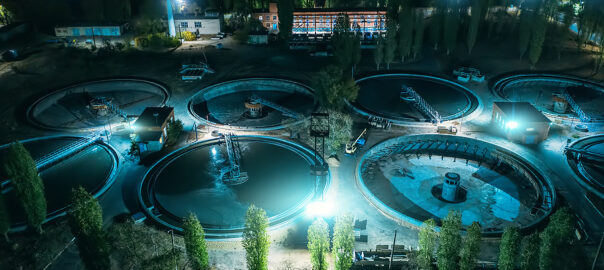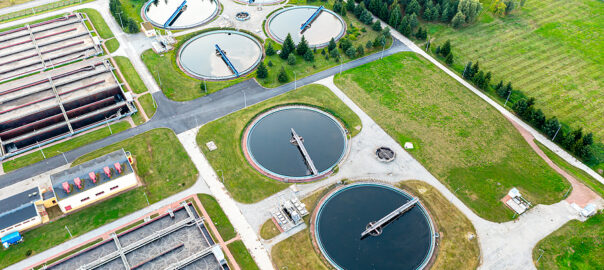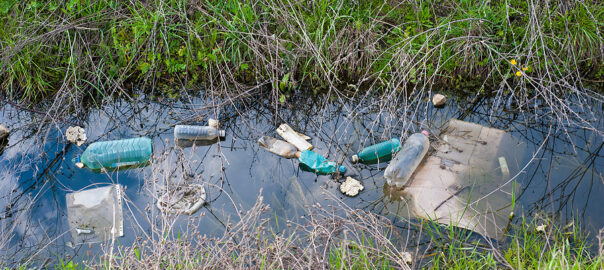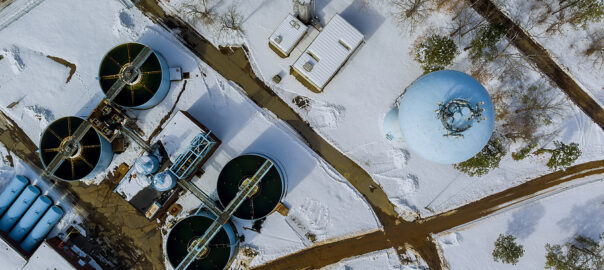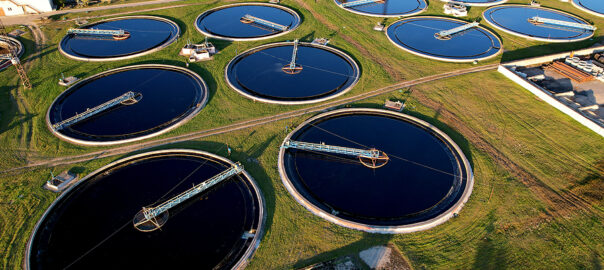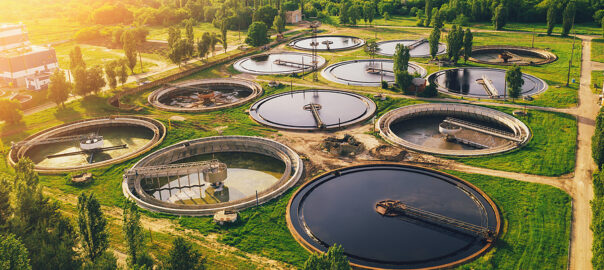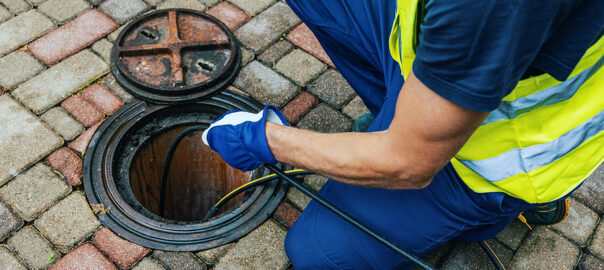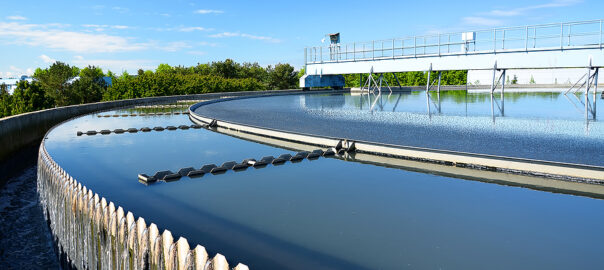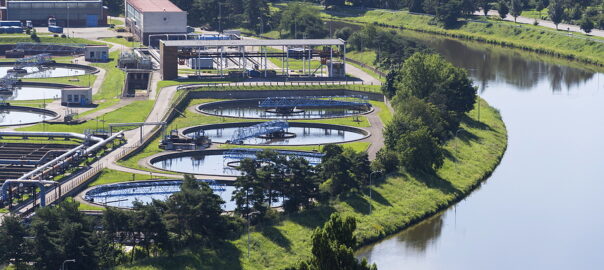
As we celebrate Earth Day, the importance of protecting our planet’s resources takes center stage. As both urban and rural areas are experiencing population expansions, including increasing industrial activity, developing sustainable approaches to wastewater treatment has never been more important.
Today’s wastewater treatment facilities are the gateway to the health of our waterways. Sustainable wastewater solutions, including advancements in wastewater treatment technologies, are key to ensuring clean water returns safely to the environment.
Wastewater treatment facilities serve important roles in environmental protection. They must continually evolve to meet new challenges and demands, while also taking steps to reduce their ecological footprints and be good stewards of the environment. From energy-efficient systems to enhanced resource recovery, today’s wastewater treatment solutions show us how the industry is evolving with a continued commitment to sustainability.
The Changing World of Sustainable Wastewater Treatment
Traditional wastewater treatment has come a long way in not only recent decades, but also recent years. Today’s modern facilities now integrate sophisticated technologies that are capable of cleaning water more effectively, and do so with even less environmental impact.
The most important advancements in wastewater treatment for sustainability focus on three main areas – energy efficiency, resource recovery, and reduced chemical usage.
Energy Efficiency: Powering Progress Through Smart Energy Solutions
Wastewater treatment plants often consume large amounts of energy, especially large facilities with high volumes of water treatment. The amount of energy used largely depends on the method of treatment and the types of pollutants and contaminants in the water.
Initiatives that support energy efficiency in the industry are important for sustainability in the future.
For example, some wastewater treatment facilities are capturing and reusing thermal energy from treatment processes. This alone can help facilities use less energy and reduce their heating and cooling costs.
Resource Recovery: Turning Waste Into Value
Resource recovery is crucial to sustainable wastewater treatment, with more facilities taking on the role of resource recovery centers, rather than just treatment plants. Moving beyond biogas generation and biogas recovery, facilities are looking for new ways to extract valuable resources from wastewater streams.
As an example, some facilities are able to recover cellulose fibers from paper product remnants in wastewater, which can be repurposed into building materials or used in biofuel production.
The industry is also looking at how water reuse programs are also becoming more sophisticated, with treated effluent being purified to standards that are suitable for agriculture and industrial processes.
Nature’s Way: Biological Solutions Reducing Chemical Dependency in Wastewater Treatment
The industry overall is beginning to make a shift toward reduced chemical usage, which is an important step toward water treatment sustainability. Today, more facilities are adopting biological treatment processes that utilize natural bacterial communities to break down pollutants and remove nutrients, which reduces the need for chemical additives.
Another approach is using advanced oxidation that uses UV light and hydrogen peroxide to treat wastewater effectively without the environmental concerns that are common with chemical treatments.
The goal is to not only reduce the environmental impact of chemical production and transport, but also improve worker safety.
Smart Technology Integration
Smart technology has enhanced our lives on many levels, including wastewater treatment efficiency. Smart technology and automations are really changing how efficient and, as a result, how sustainable, wastewater treatment can be.
As an example, advanced monitoring systems can provide real-time data on wastewater treatment processes, which allows facility managers and operators to adjust treatment parameters and reduce the consumption of resources used in water treatment.
Nature-Based Solutions to Wastewater Treatment
One of the most amazing wastewater treatment processes doesn’t involve equipment or specific treatment processes. Nature-based solutions are a contrast to new technological advances, but are gaining recognition for their role in wastewater management.
An example of effective nature-based solutions is constructed wetlands with living “filters” that not only treat water, but create important wildlife habitats and green spaces.
Nature-based solutions like this use microorganisms and plants, as well as soil, as natural filters to treat wastewater. These systems require very little in terms of energy input and maintenance since they are self-sustainable.
Wastewater Treatment and the Big Picture of Sustainability
The movement toward more sustainable wastewater treatment options is important as the industry continues to make advancements in this area through new innovations in technology and steps to reduce energy consumption.
But it’s equally important to take a look at how the wastewater treatment industry contributes to a cleaner, more sustainable world every day.
Effective water treatment is a guarantee that the water that makes its way back into our local water resources and soil is clean and safe. This is absolutely critical for public health in local communities. A healthier society is a more sustainable society.
Through effective wastewater treatment, harmful pollutants, including chemicals, heavy metals, and microorganisms that are harmful to human health, are removed so that they no longer pose a risk.
The effects of this extend beyond human health and affect the health of wildlife and natural ecosystems. Wastewater treatment is essential for preserving wildlife habitats and ecosystems, as it removes harmful pollutants before the treated wastewater is released into local lakes and rivers.
At the end of the day, wastewater treatment is one of the most valuable, sustainable ways we have to conserve one of the world’s most valuable resources – its water.
Future Directions in Sustainable Wastewater Treatment
Looking toward the future, wastewater treatment is full of exciting possibilities that will further contribute to the sustainability of the industry. Research is continually evolving, leading to the development of new technologies, including those that can generate electricity directly from wastewater treatment processes. Along with this are treatment methods that are more efficient, but have an even lower environmental impact.
Water reuse technologies are becoming more advanced, allowing wastewater treatment to play an important role in addressing water scarcity, especially in drought-affected areas. Treated water can be safely reused for agricultural, irrigation, and industrial processes. With advanced treatment, water can even be used for drinking water, further helping to address water scarcity challenges.
Celebrating Earth Day with a Focus on Sustainability
Today, we as a society are confronting global challenges, such as water scarcity and climate change. Sustainable wastewater treatment has become increasingly important in addressing these challenges. The wastewater treatment industry is continually developing solutions and is committed to innovations that make treatment more sustainable, while protecting the environment and public health. Contact Lakeside Equipment today to learn more.

